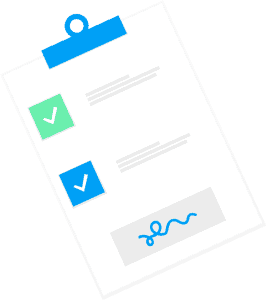How Intercont Freight Liners became a digital freight forwarder and saved +€500.000 annualy

Intercont is one of India’s largest freight forwarders. They are pioneering the use of technology in the maritime shipping industry.
The reason for this: technology is able to create transparency and helps to save time in operations. This means there is more time to advise customers. For Intercont it is clear that ‘customer success’ is the priority, with a freight forwarder’s service being the main aspect to distinguish themselves in this competitive market



Embracing technology has brought Intercont
- 14 hours / day time saved due to automatic track and trace updates
- 42% reduction in demurrage and detention costs
- Freight volume growth of 5.000 TEU in 2019
Challenge: customer-first approach
Intercont has become a market leader due to their customer-first approach. The company is wel aware of the fact that as a freight forwarder, to make a difference you have to focus on the service you are able to offer to your customers.
Therefore, their most important challenge is to allocate more time to fulfilling the needs of their customers. For this reason, they started searching for the right logistics innovations to free up more of their time.
To start, they first identified their most time-consuming activities:
- Checking websites of shipping lines for container status updates
- Checking free time agreements
- Sharing information with clients

Solution
Looking for a way to take on these challenges, Intercont came across Dockflow, and it was a match immediately. The flexibility of the Dockflow platform made it easy to answer the needs of their operations. The following solutions were implemented in Intercont’s operations:
Automatic track & trace updates
One of the most impactful solutions the Dockflow platform was able to offer Intercont was the automation of track & trace updates. At Intercont two full time employees used to be solely focused on following up on the track & trace information made available by the shipping lines. Browsing the different websites of the shipping lines and retyping the 10-digit containernumbers absorbed all of their time.
At this moment, these updates are flowing into the Dockflow platform automatically. Checking the different websites of the shipping lines has become a thing of the past. Every container status update can be checked in the platform, and if there are any drastic changes in the transport plan (e.g. ETA change) Intercont gets notified.
The two employees who used to be occupied with the repetitive task of checking container status updates, made a transition into a consultant like role. Intercont made the strategic decision to dedicate these employees to advising their clients on how to streamline their supply chain, which has proven to be a huge succes already.
Demurrage & detention agreements
In 2018 Intercont had paid over $100.000 in demurrage costs. This huge amount is the result of the consignee not accepting the delivery of a container, and the shipper not having enough cash to cover the entire amount. In many cases Intercont becomes the party negotiating with the shipping line and covering these costs.
Within Intercont multiple employees had the job to overlook the free time agreements with the shipping lines, and make sure demurrage and detention costs could be avoided. The goal was to notify the consignee and the shipper before demurrage or detention costs would occur, so that perhaps a solution could be found.
However, this task is just too difficult to manage. In many cases there are custom agreements that are negotiated with the shipping lines. These agreements again differ depending on the port of destination. Moreover, some agreements calculate the free time according to the calendar days, other take into account only business days etc. In addition, these agreements have expiry dates that have to be watched closely. There are just too many variables for employees to follow up, mistakes are inevitable.
Getting notified before demurrage & detention costs occur and having an overview of free time agreements and their expiry dates, are both features of the Dockflow platform. Since the implementation of Dockflow, Intercont was able to save $80.000 in demurrage and detention costs in comparison to previous years.

Communication with clients
The managing team of Intercont makes it a priority to make their service as personal as possible . As a result, a lot of the team’s time is spent on the phone, calling, texting and emailing their clients to answer all their questions about their cargo.
However, since Intercont ships around 30.000 TEU annualy, represented by many different clients, this also becomes an unmanageable situation.
When wondering how to simplify this proces, the team noticed it are often the same questions that are getting asked: “Where is my container at the moment?”, “What is the ETA?”, and “Has my container arrived yet?”.
Next to improving internal efficiency, the Dockflow platform helps freight forwarders with external communication with clients. In the platform it is easy to decide which information should be shared with which clients.
Now, the clients of Intercont can log in and get answers on all of the previously mentioned questions. In that way the Dockflow platform serves as a client portal. Again, freeing up huge amounts of time for the managing team of Intercont. Time that is now spent on the most urgent and complex questions of clients.
Conclusion
Intercont was founded with the vision of being a “boutique” freight forwarder. The term, coined by the founding team, means that Intercont strives to be customer centric, and makes a difference for their clients by the service they experience when entrusting Intercont with their cargo.
Although the company grew larger and larger, they still wanted their clients to feel they are unique. From this perspective, the road to a more digital service started. Although technology and a personal service are often seen as contradictions, the story of Intercont proves the opposite is true.
By freeing up time through automating operations and keeping their clients up to date by providing them with an account to their customer portal, Intercont has had more happy customers, and were even able to grow their customer base. As a result, Intercont has grown by 5.000 TEU in 2019. Although this is the culmination of an overall successful strategy, the fact that Intercont became a more digital freight forwarder through Dockflow has been essential to this growth.
